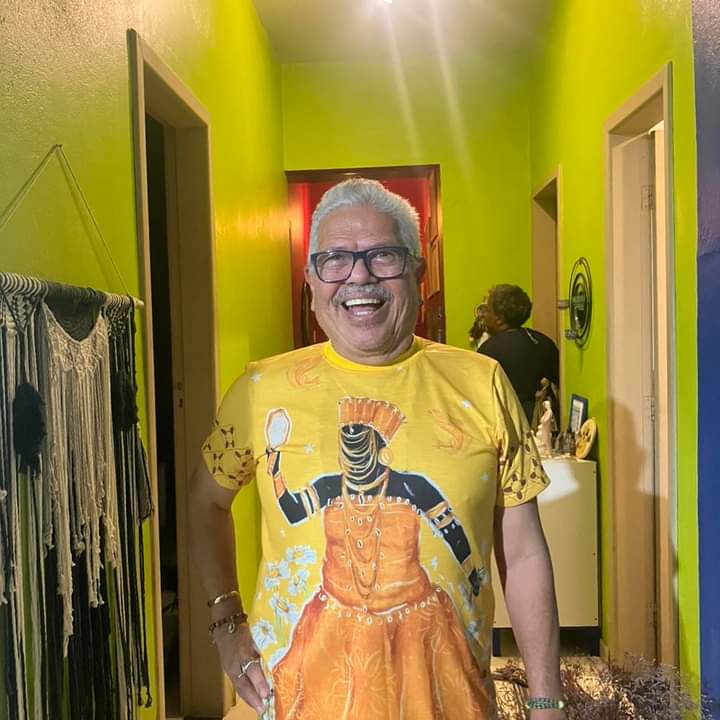Donald Trump’s campaign continues to promote racism and xenophobia. In his first presidential term, he said that Africa was a continent of criminals. When Hurricanes Maria and Irma hit Puerto Rico in September 2017, leaving thousands dead and the island destroyed, Donald Trump showed up and threw rolls of paper towels at people.
In his current campaign he has said that, if he wins the presidency, he will deport more than two million migrants –– similar to what the Dominican Republic is now doing to Haitian migrants in their territory.
Most shocking for many were the words that Donald Trump and his Republican Party recently said at New York’s Madison Square Garden Theater via a comedian named Tony Hinchcliffe who said that “Puerto Rico was a floating island of garbage.”
The AmNews recently spoke about Puerto Rico with Agustin Laó-Montes, a social sciences professor at the University of Massachusetts Amherst, who is an activist with Articulacion Regional Afrodescendientes de America Latina y el Caribe (ARAAC/Regional Articulation of Afro-descendants of Latin America and the Caribbean).
AmNews: When did the process of annexation of Puerto Rico to the United States begin, and what was the pro-independence reaction of Puerto Ricans?
Laó-Montes: Rather than annexation, what is more fundamental is to characterize the archipelago of Puerto Rico as a U.S. colonial territory and Puerto Ricans –– whether they live in Puerto Rico (where there are 3.5 million) or in the U.S. (where there are 5 million) –– as colonial subjects of the Yankee empire.
In economic terms, we could say that this process began in the mid-19th century when the nascent United States empire became an important buyer of sugar produced in Puerto Rico. But the historical reference point is when Puerto Rico became a colonial possession of the United States after the Spanish-Cuban-U.S.-Philippine War of 1898, which resulted in the signing of the Treaty of Paris in December 1898, when Puerto Rico became a colony of the United States. Up until today, our sovereignty still resides in Congress and with the Executive of the U.S. imperial state.
Trump says his New York rally marked by crude and racist insults ‘was like a lovefest’
AmNews: How many military bases does the United States have in Puerto Rico and what are their functions?
Laó-Montes: Until a decade ago, Puerto Rico was a pivotal territory in the repertoire of United States military bases. Its strategic location in the middle of the Caribbean gave it a major role in the U.S. geopolitical military cartography. For example, U.S. military invasions, such as those of Grenada in 1983 and Panama in 1989, were rehearsed and maneuvered from U.S. military bases in Puerto Rico. In addition, Puerto Rican soldiers have been placed on the front lines –– as cannon fodder alongside African Americans –– in a series of wars, from World War II to the present day. One of the unintended results of the compulsory participation of Puerto Rican soldiers in imperialist wars is that this has been a school of racism and imperial violence that has nurtured the Puerto Rican independence movement both in Puerto Rico and in the U.S. By now, most of the U.S. military bases in Puerto Rico have been closed, this role has been displaced to Colombia where there are now 10 U.S. military bases.
AmNews: What role have Puerto Rican, or Boríquen, representatives played in the United States Congress? Can you list the transcendental struggles of these Boríquen congress members?
Laó-Montes: Boríquen congress members in the U.S. have played a progressive role from Herman Badillo, a community organizer from New York who was the first to the most recent one, Alexandria Ocasio-Cortez. The two congresspeople who have played the most progressive roles have been Luis Gutierrez of Chicago and Alexandria Ocasio-Cortez of New York: in addition to supporting Puerto Rico’s self-determination and criticizing its colonial status, they have supported the most important struggles in Congress, against imperialist wars and in favor of the rights and representation of the dispossessed communities in the United States.
Like this:
Like Loading…
Related
Source link : http://www.bing.com/news/apiclick.aspx?ref=FexRss&aid=&tid=672495cb2759421f9d9e85480c1d033b&url=https%3A%2F%2Famsterdamnews.com%2Fnews%2F2024%2F10%2F31%2Fpuerto-rican-dignity-is-beyond-debate%2F&c=12263802536416235599&mkt=en-us
Author :
Publish date : 2024-10-31 00:36:00
Copyright for syndicated content belongs to the linked Source.
